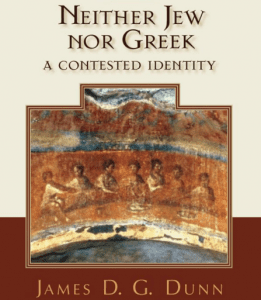Tim Keller, in his (just about to appear in stores) new book, King’s Cross: The Story of the World in the Life of Jesus, examines the life of Jesus in two parts: King and Cross. The life of Jesus Keller studies is the Gospel of Mark, and I will do a series on Keller’s new book.
What do you think of Keller’s trinitarian reading of the baptism? Do you think Mark believed that?
 I like an early confession on his part: “… before the change, I pored over the Bible, questioning and analyzing it. But after the change it was as if the Bible, or maybe Someone through the Bible, began poring over me, questioning and analyzing me” (xiii). He describes what happened to him during his college years.
I like an early confession on his part: “… before the change, I pored over the Bible, questioning and analyzing it. But after the change it was as if the Bible, or maybe Someone through the Bible, began poring over me, questioning and analyzing me” (xiii). He describes what happened to him during his college years.
He continues: “Though as a youth I had believed that the Bible was the Word of the Lord, I had not personally met the Lord of the Word” (xiv).
He opens quoting Mark 1:1-4, where Mark announces Jesus is the The King, the Son of God (which Keller sees as divinity), and then sums this up: “Mark roots Jesus as deeply as possible in the historic, ancient religion of Israel. Christianity, he implies, is not a completely new thing. Jesus is the fulfillment of all the biblical prophets’ longing and visions, and he is the one who will come to rule and renew the entire universe” (4).
When it comes to the baptism, Keller explores Trinitarian theology under the idea of a dance:
At creation and the baptism of Jesus there was the Father, who is the Voice; the Son, who is the Word; and the Spirit, who flutters like a dove. And this is where he takes us: “If it’s true that this world has been created by a triune God, then ultimate reality is a dance.” He joins the Eastern thinkers then in seeing ultimate reality as the perichoresis, the mutual indwelling dance of the Persons of the Trinity in their indwelling and interpenetration of One Another. Each glorifies the the Other in a dance of glorification. To glorify is to serve someone unconditionally because of who that person is.
In this inner glorification, God is happy.
For Keller, there is a mutual deference to One Another, showing that the Trinity is the opposite of self-centeredness. There is an Other-centeredness here.
If God were unipersonal, there would have been no love prior to creation. God would not and could not be in essence Love — but the Trinitarian thought leads us to see God as Love in essence.
This means Life is about relationality. He calls God a “community of persons.” We are called to enter the dance, to step onto the dance floor of taking delight in the Divine Other, in God. The dance is about giving our (if I may) One.Life to the One.God.
I won’t say more today… in the temptation he sees Jesus and Adam (I think it is Jesus and Israel in the wilderness, though Mark’s Gospel is not as clear in this regard as are Matthew and Luke).











